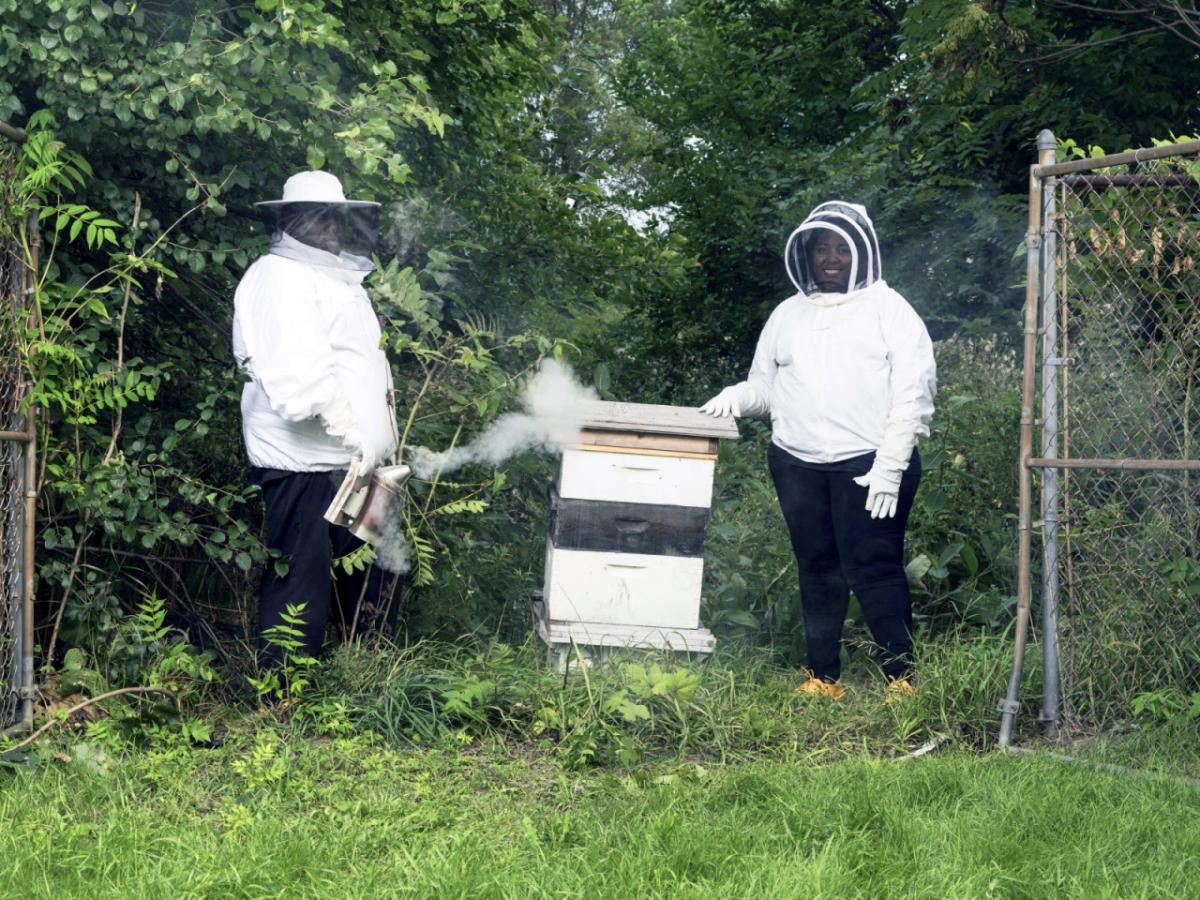Sustainability in Detroit, Part 2: Making Way for Bees
Originally published on erb.umich.edu
Timothy Paule, Detroit Hives
A little over two years ago, Timothy Paule and Nicole Lindsey started the nonprofit Detroit Hives, transforming vacant lots into urban bee farms. They also teach the community about the importance of honeybees and conservation.
“We’re working to strengthen our communities as well as our bee population,” Paule said. Vacant lots often mean blight, potential injuries and crime. “But one great thing about these vacant lots is that they’ve been overgrown over time . . . a lot of neighbors have left, but their fruit trees and their plants are still there.” These lots are full of plants and wildflowers that “provide food security for pollinators, and what’s happening is that it’s actually boosting native bee populations,” he explained. Then, “in return, these pollinators are providing food security to us, by way of cross-pollinating our local gardens and community gardens.”
Detroit Hives has seven locations and 35 beehives in Detroit, only some of them in formerly vacant lots. They installed a hive at Mumford High School, Paule’s alma mater, where they speak to students regularly. Detroit Hives also partners with community farms, which offer sources of pollen and nectar for the bees, and the bees in turn boost the farms’ yield. “This provides more food to the community,” Paule said. This National Geographic short film shows some of Detroit Hives’ work.The apiaries are intended to be inviting spaces for the community. “We reimagine these vacant lots, and we transform them into educational apiaries, whereby they’re beautified—and now they’re serving as an educational hub to teach the community about the importance of bees, and also to give them access to local raw honey.”
Detroit Hives’ East Warren apiary has hosted well over 500 tours, for local schools, businesses and community organizations. Paule said that multiple generations sometimes show up for tours: children, their parents and their grandparents. Sometimes the grandparents grew up on farms in the South and migrated to Michigan, but “they still remember how honey can heal them,” he said. At the same time, “a lot of people want to know where their food comes from,” and they look for local raw honey.
Children—particularly high schoolers—might initially be uninterested in bees. “But when we bring them to the bee farm, that’s when we know we have their full attention, because this is something they’ve never seen before. They’re bringing out their cell phones and taking pictures, they’re asking questions, they’re raising hands—so we know they’re more engaged,” Paule said. Detroit Hives also uses art, music and technology to engage youth. For example, they’re working on a recording of bees buzzing to incorporate into music. “Art is the way we can usher in these conversations” about bees and conservation, he said.
Detroit Hives allow Detroit residents to learn about something that they might never be exposed to otherwise—or that they might have to drive hours to get to. With apiaries right in the city, people can learn more about where their food comes from and their local environment. Paule, who is African American, also noted that many people haven’t seen black beekeepers. So the experience might open doors for black children to get interested in beekeeping or conservation.
What does a more sustainable Detroit look like to you?
“A lot of the spaces we create, in regard to development—we should make them more inclusive,” Paule said. “A lot of times, we create spaces that are just for people, and we kind of leave out nature and environment. We need to figure out ways we can make them more inclusive. That would make a more sustainable Detroit—everyone and everything would be included.”



